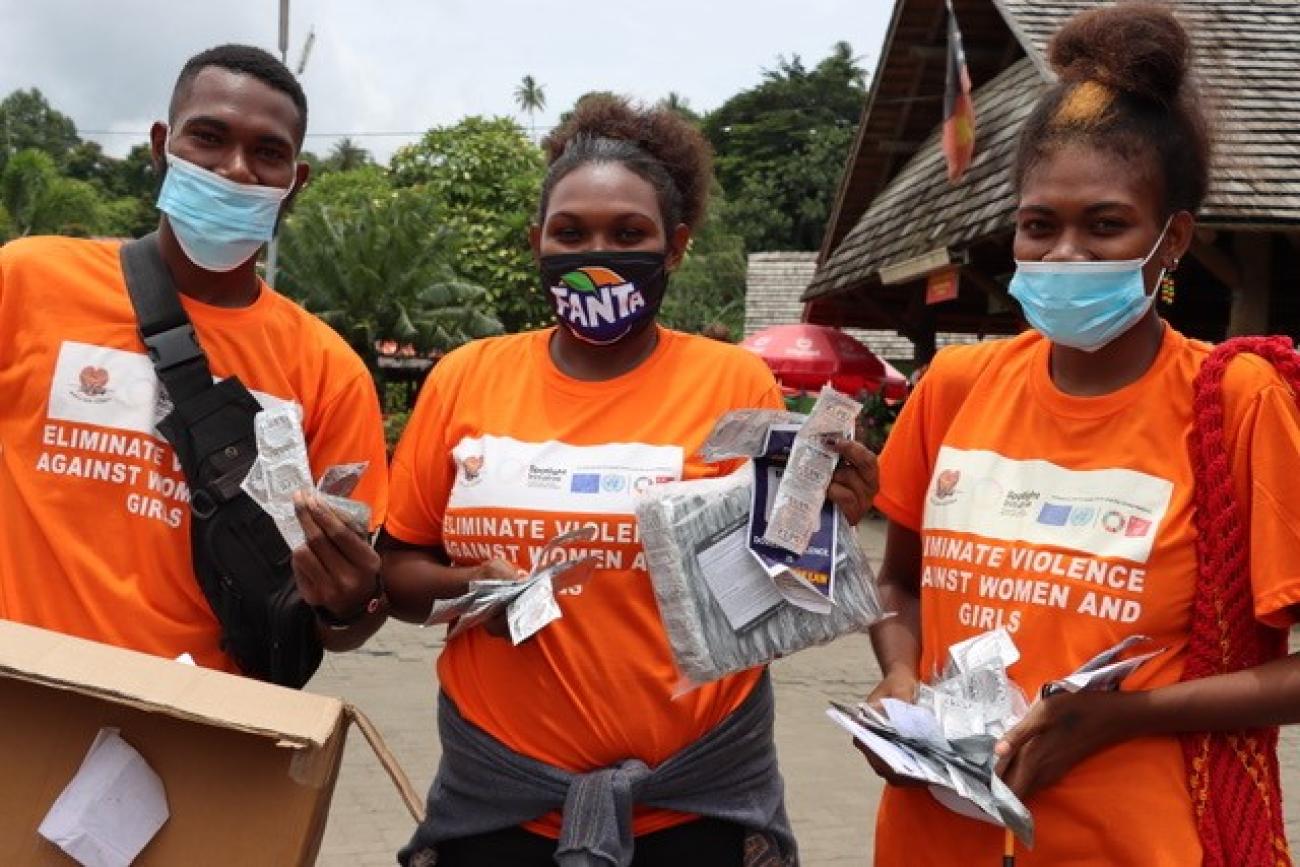“I would say most, more than 60%, of the survivors of gender-based violence that we see in the clinic are young adults,” says Primrose, Youth Coordinator for the Family Health Association (FHA) in East New Britain.
Primrose leads a team of peer educators from the FHA to end this trend through community outreach to schools and communities across East New Britain. She has just stepped off stage after delivering a presentation to senior students of Kokopo Secondary School.
“We do clinical outreach and we also do community outreach,” she says. “We focus on family planning and especially preventing unwanted pregnancies so young girls are able to complete their education.”
Primrose’s session emphasised that students can reach out to the FHA for help and that violence is never the survivor’s fault. Empowering youth to report instances of violence is crucial to the FHA’s outreach program.
“We believe that it’s very important to ensure that young people realise that violence against anyone, whether it’s in a relationship or between any other young people, it’s not okay,” said FHA Director Michael Salini. “We need to get that message across to them.”
“So that’s why we engage these young people to do it on behalf of the organisation. Young people talking to young people is the most effective way of changing perceptions and values in communities.”
“When peer educators speak to young people, it’s like we’re speaking the same language,” says Primrose. “We’re in the same peer groups and we’re better able to get that message across.”
Emerging harms to young people’s health and wellbeing, alongside traditional threats of intimate partner violence and child abuse, demand innovative, peer-led solutions. Being proactive in these solutions is critical to breaking cycles of violence and modelling safe, healthy relationships for the next generation.
The program has significant support from students who confess information from adults often fails to recognise the experiences of today’s youth.
“I, personally, had gone through that kind of experience with cyber-harassment,” shared Margaret from Kokopo Secondary School. “I can testify that at that time there were no teachers that really understood that because they were older.”
“So, I think cyber-harassment is one of the issues that older people have a hard time to understand. If a young person stands up and speaks to young people in a way that they understand, people will pay attention.”
Following the school outreach session, the team from FHA moved to Kokopo markets where volunteers distributed pamphlets and condoms, part of their wider clinical outreach program to educate the public on sexual and reproductive health, and prevention of sexually transmitted infections.
The Spotlight Initiative is supporting the Family Health Association in East New Britain to conduct youth outreach activities that promote positive relationships and connect young people to sexual and reproductive health services.







